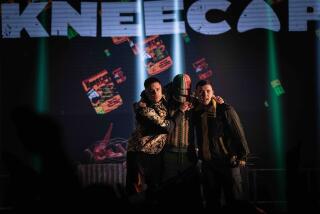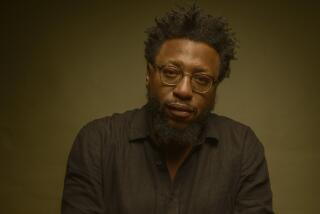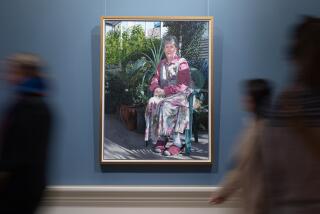Moneygall, Ireland: A village of Obama family-tree huggers
- Share via
MONEYGALL, IRELAND — Until recently, Moneygall’s most famous son wasn’t even human. It was a horse, Papillon, who streaked to the title as a long shot in a nail-biter at Britain’s prestigious Grand National race in 2000.
But for months now, the modest sign marking Papillon’s achievement has been muscled aside by pictures celebrating the new hero in this tiny pit stop on the Dublin-to-Limerick road: President Obama -- or, as they like to call him here, Barack O’Bama.
An out-of-the-blue call from the United States, some yellowing church records and an iPhone-toting priest have earned bragging rights for Moneygall as the “ancestral home” -- one of them, anyway -- of the leader of the free world.
How the family connection came about is the quintessential story of America as a nation of immigrants and Ireland as a land that supplied them, including Obama’s great-great-great-granddaddy on his mother’s side, a cobbler from Moneygall. How the tie was unearthed more than 100 years later and how news of it spread across the globe is a testament to 21st century instant communication, Obama’s star power in Europe and the natural gregariousness of the Irish.
Since the discovery of its link to Obama a little less than two years ago, Moneygall (population 298) has been catapulted out of its sleepy backwater and into the international spotlight.
Camera crews from distant countries flocked to the village during the U.S. presidential race, eager to capture reaction at the neighborhood pub, between pints of Guinness, to Obama’s primary and election victories. “There’s No One as Irish as Barack Obama,” an infectious song by a Limerick-based band, became a YouTube sensation and landed the group a recording contract.
Moneygall’s merchants, including the glazier and a plumbing company, have happily seized the opportunity for some self-promotion, plastering Obama’s face on their ads. Tourists from France and Germany have stopped by to pay their respects. A politician, meanwhile, wants to erect an Obama heritage center.
It’s the most attention ever lavished on the village, where you can find two pubs, a small general store, an ice cream vendor, a car dealership and a single traffic signal, if you don’t blink.
A cluster of neat if nondescript stucco houses lines the Dublin-Limerick highway. Larger homes dot the sprawling countryside behind, in what residents refer to as “the hinterland.”
Many of the visitors knock on the door of Henry Healy Jr., 24, the genial spokesman of Obama’s current-day Irish kin. According to local records, Healy’s great-great-great-great-great-great-great-aunt was Obama’s great-great-great-great-great-great-grandmother.
“So there’s a definitive blood link between our family and Barack Obama. It makes me an eighth cousin,” declared Healy, a full-blooded Irishman with brown hair and blue eyes.
“The resemblance is uncanny,” his friend Stephen Neill added.
“Uncanny,” agreed Healy.
Neill, 39, a Protestant rector of the Church of Ireland, played a key role in establishing Moneygall’s contribution to Obama’s existence and propelling the community to worldwide fame. For that, he was praised in the Obama song as a “great man of God,” although the endorsement doesn’t appear yet on his resume.
In April 2007, an e-mail popped up in Neill’s inbox from someone with Ancestry.com, a genealogical research firm in Utah, requesting information potentially buried somewhere in the archives of Neill’s parish. The e-mail didn’t mention Obama, and Neill, who receives such inquiries not infrequently, let it sit.
But the researcher followed up with a phone call explaining that his interest in the Kearneys, a family from the old Templeharry parish, was part of an attempt to draw Obama’s family tree. Neill, who had read Obama’s book “The Audacity of Hope,” was hooked.
From a parishioner’s home, he retrieved a set of tattered ledgers and began thumbing through lists of baptisms, marriages and deaths dating back to 1799, recorded in the old-fashioned, spiky handwriting of the time. Within a couple of hours, he had located entries that confirmed the presence of a couple named Joseph and Phoebe Kearney (variously spelled Karney, Kearny and Carny).
Cobblers by trade, the Kearneys lived in Moneygall, and stuck it out in the village through the worst of Ireland’s devastating potato famines of the 1840s.
“Their family would’ve been better off than most,” Neill said. “They had a good trade as shoemakers. One of the family was on the famine relief committee.”
But in 1850, the Kearneys’ second son, Fulmouth, then about 20, decided to join the millions of Irish who were quitting the Emerald Isle in search of better lives elsewhere. Fulmouth’s decision changed the family’s history -- and America’s. The rest of the Kearneys followed him to the U.S., and four generations later, his great-great-granddaughter Ann Dunham married Barack Hussein Obama Sr.
Ancestry.com asked Neill to keep the findings to himself for a few weeks while they verified everything. Then the company went public.
So did Moneygall -- big time.
“The media just descended on us. It was extraordinary,” said Neill, who gave dozens of interviews on the first day alone. “By the end of the day I was absolutely exhausted.”
Healy’s affable face, too, was beamed all over the world during his off hours from work as a bookkeeper at a nearby plumbing company.
After that, every Obama milestone -- his run of primary victories, his acceptance of the Democratic nomination, his election day triumph -- drew more attention to Moneygall, until the satellite trucks (as well as a few enterprising chips vans) were reliable fixtures outside the village’s two pubs on important campaign days. One of the pubs, the Ollie Hayes, now flies an American flag out front.
When Obama himself remarked in a speech that he’d like to visit Moneygall one day and raise a pint, the place went wild.
“There was more interest in the American election than there has been in local elections,” Healy said.
Obama is not the first U.S. president to be embraced by the Irish. John F. Kennedy was looked on as practically a native son, and the village of Ballyporeen, in County Tipperary, cashed in on its status as the hometown of Ronald Reagan’s great-grandfather.
But Obama’s popularity in Ireland, and other parts of Europe, approaches rock-star heights, remarkably so for a politician who was a virtual unknown here until a couple of years ago.
Gerard, Brian and Donncha Corrigan, three musical brothers fortunate enough to have day jobs, found Obama so inspiring that they sat down and wrote “There’s No One as Irish as Barack Obama” in 20 minutes.
Its lyrics will win no awards in the land of Joyce and Yeats (“He’s as Irish as bacon and cabbage and stew / He’s Hawaiian, he’s Kenyan, American too”), and “Barack” is pronounced like a building that houses soldiers.
But the Corrigans’ homemade video on YouTube went from 25 hits in the beginning -- which the brothers acknowledge were mostly their own -- to millions from around the world. It won them a recording deal with Universal, which rush-released their hit song (digital sales at 5,000 so far), but insisted that they ditch their band’s longtime name: Hardy Drew and the Nancy Boys.
“Brian agonized terribly over it. We threatened to fire him, so he’s not so much anymore,” said Gerard Corrigan, the front man for the group, which has been rechristened, much less amusingly, as the Corrigan Brothers.
In January, the Corrigans, Neill and Healy attended Obama’s inauguration in Washington at the invitation of the American Ireland Fund. Alas, there was no tearful reunion between Healy and his long-lost cousin, who seemed rather busy.
As for the future, a county official has proposed that some sort of heritage center be built in Moneygall on the plot of land once occupied by Obama’s forebears.
But no one is quite sure what would go in it -- an exhibition on local history or Irish emigration, perhaps, or a shop re-creating the old family business: “Obama Shoes,” Healy said.
For now, Moneygall is content to bask in the reflected glory of its most famous descendant -- sorry, Papillon -- and to watch how he performs as the most powerful man in the world.
“It’s wonderful to see somebody who inspires people and gets the best out of people,” Neill said. “He helps people lift themselves beyond their circumstances.”
And maybe entire villages as well.
--
--
latimes.com/columnone
Previous Column One articles are available online.
More to Read
Sign up for Essential California
The most important California stories and recommendations in your inbox every morning.
You may occasionally receive promotional content from the Los Angeles Times.











